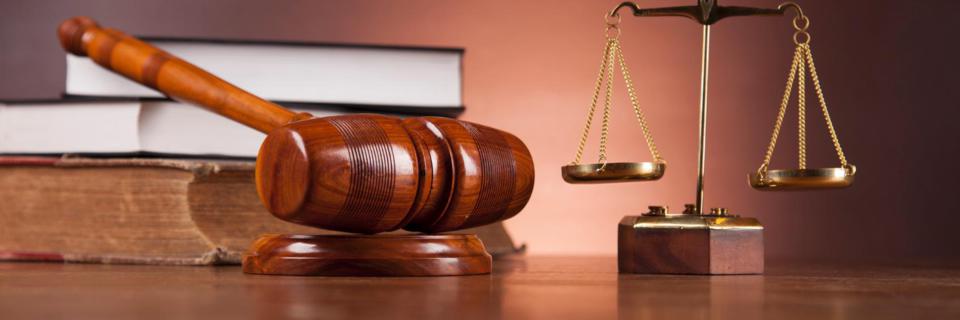
Fields of Law
Intellectual Property
- Copyrights
- Trademarks
- Patents
Real Estate
Our Specializations
Trademark, copyright or patents
While consumers use these terms interchangeable, these are 3 distinct types of intellectual property. A Trademark protects your brand name and logo used in/on your goods and services. A Copyright protects an original artistic literary work, and a Patent protects an invention. For example, if you invent a new vacuum cleaner – you would obtain a Patent to protect the invention itself. You would apply for a Trademark to protect the name or logo you use to identify the vacuum cleaner and you would apply to Copyright the advertisement/commercial you use to market the vacuum cleaner.
Trademark
What is a Trademark? It is a word, phrase, symbol, design or logo (or combination) that identifies the source of your goods or services. It is your BRAND! A trademark allows customers/consumes to distinguish your goods or services from another company/source.
Trademark Search
Before applying for a trademark, we recommend a search to determine its availability for use and registration. We can conduct computer database searches to screen your potential mark(s). We can also analyze full search reports to provide an opinion on the availability of a mark for use and registration. We typically provide advice on whether the term or device can function as a mark and the protectability of the mark against others. We also advise our clients on the benefits of registration versus common law - unregistered use.
Trademark Prosecution: Prior to filing applications, we strive to spot issues and avoid unnecessary prosecution and the associated costs. In those instances where Office Actions issue, we promptly report them to our clients and attempt to minimize cost where possible in responding.
Office Action Responses: An office action response is your official legal response to an office action issued by the USPTO. Office actions can consist of a simple request for additional information to a lengthy argument supporting a refusal to register your trademark on any number of statutory grounds.
PATENTS
A patent protects inventions. It is a property right to EXCLUDE others from making, using, selling, offering for sale, or importing your claimed invention. The right is given for a limited term in exchange for you fully disclosing your invention. Of note, the patent only protects your invention in the territory in which the patent is granted.
Why obtain a patent? A patent can be used to gain entry to a market, exclude others from a market; used as a marketing tool to promote the unique aspects of the invention; sold or licensed like any other property right.
Types of Patents
Design – protects the way an article looks, including the shape or ornamentation applied to the article
Plants – protects plants not normally found in nature, new variety of asexually reproduced plant.
Utility – protects how an invention works
When an inventor contacts us about their invention, we typically provide advice on the patentability of the invention and the requirements and necessary steps for securing patent protection. We work with inventors to explore and refine their ideas to identify the limits and potential applicability of their invention. This approach enables us to seek to obtain a patent that provides the broadest possible protection for the inventor.
We work closely with inventors, to ensure that all aspects, features, and details of the invention are captured in the application. After filing a patent application, we work diligently to advocate for our inventors throughout the patent prosecution process. We maintain ongoing communication with patent examiners through formal correspondence, as well as telephone and in-person communications, to streamline the examination process and ensure that our clients obtain the patent rights to which they are entitled.
COPYRIGHTS
A copyright gives certain exclusive rights to individuals who create original works of authorship, including literary, musical, dramatic, artistic works. Literary works is quite broad and includes musical works with any accompanying words; dramatic works – including any accompanying music; pictorial, graphic, pantomime, and choreographic works; motion pictures, sound recordings, drawings to name a few.
To be copyrightable, the work must be more than an idea, it must be “fixed” in a tangible form of expression. The work must also be original. It cannot be copied from another source.
Why Register your Copyright?
Advantages of registering your work includes: (1) It establishes a public record of your ownership of the work. (2) It enables the copyright owner to sure for copyright infringement. (3) Allows you to record the registration with U.S. Customs to protect against importation of infringing copies into the U.S. (4) It allows for the election of statutory damages and the ability to recover attorney’s fees in an infringement action.
We routinely file copyright applications with the U.S. Copyright Office and where litigation is imminent, we can seek registration on an expedited basis.
USPTO Office Actions
Have you received any of the following communications from the USPTO for your Patent or Trademark Application?
|
For Patent Applications |
For Trademark Applications |
|
|
|
|
|
|
|
|
Please contact us to assist with your responses to the above mentioned USPTO Office Actions.
REAL ESTATE
Represent buyers or sellers in the purchase or sales or residential properties.
Contact Wilson & Brown PLLC to schedule a free consultation to help you assess the communication and present you with viable options for moving forward.
Do you have questions about our services?
Contact us at 646-498-9816 or via our contact form.
